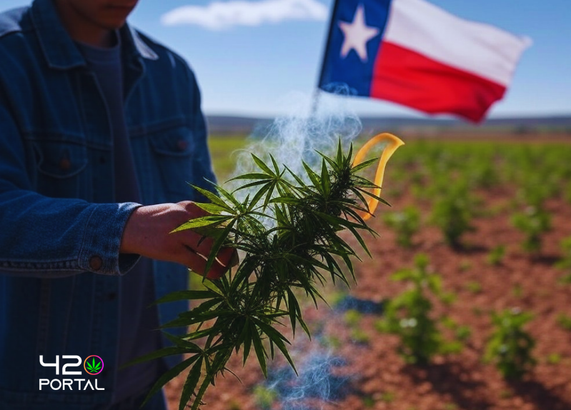Texas Marijuana Legalization: A Legislative Tug-of-War

12/27/2024
In a surprising turn of events, Texas is witnessing a tug-of-war over marijuana policy, with both progressive and conservative forces pushing their agendas. Recently, a bill has been filed to legalize recreational marijuana in Texas, setting the stage for what could be a contentious debate in the 2025 legislative session. This comes at a time when the state is grappling with conflicting attitudes towards cannabis, highlighted by both local decriminalization efforts and state-level resistance.
The bill's introduction is spearheaded by State Rep. Jessica González from Dallas, aiming to allow adults 21 and over to possess up to 2.5 ounces of marijuana, including concentrates, and up to 10 ounces at home. The move reflects growing public support for marijuana legalization, as seen in cities like Dallas where voters have backed decriminalization measures. However, this legislative push faces significant opposition from high-ranking state officials, including Attorney General Ken Paxton and Lt. Gov. Dan Patrick.
Paxton has been actively challenging local decriminalization ordinances, filing lawsuits against several Texas cities, including Dallas, for enacting policies that he argues contravene state law. His legal actions underscore the tension between local autonomy and state control, particularly over issues like drug policy. Meanwhile, Patrick has taken a hard stance against THC products, proposing a ban on all consumable forms of tetrahydrocannabinol, which directly contradicts the push for legalization.
This dichotomy sets up a fascinating legislative battle. On one side, there's a clear demand from certain quarters of Texas for a more liberal approach to cannabis, supported by successful local initiatives and public sentiment. On the other side, there's staunch opposition from state leaders who view marijuana as a gateway to crime, drug abuse, and violence.
The upcoming session will likely be a litmus test for how Texas reconciles these divergent views. Legalization advocates argue that regulation could lead to tax revenue, reduced incarceration rates, and address racial disparities in marijuana-related arrests. Critics, however, focus on health risks, potential increases in drug use, and the enforcement of state law uniformity.
As Texas stands at this crossroads, the outcome of this legislative session could either mark a historic shift towards cannabis reform in one of America's most conservative states or reinforce the current hardline stance against it.
Reference
The bill's introduction is spearheaded by State Rep. Jessica González from Dallas, aiming to allow adults 21 and over to possess up to 2.5 ounces of marijuana, including concentrates, and up to 10 ounces at home. The move reflects growing public support for marijuana legalization, as seen in cities like Dallas where voters have backed decriminalization measures. However, this legislative push faces significant opposition from high-ranking state officials, including Attorney General Ken Paxton and Lt. Gov. Dan Patrick.
Paxton has been actively challenging local decriminalization ordinances, filing lawsuits against several Texas cities, including Dallas, for enacting policies that he argues contravene state law. His legal actions underscore the tension between local autonomy and state control, particularly over issues like drug policy. Meanwhile, Patrick has taken a hard stance against THC products, proposing a ban on all consumable forms of tetrahydrocannabinol, which directly contradicts the push for legalization.
This dichotomy sets up a fascinating legislative battle. On one side, there's a clear demand from certain quarters of Texas for a more liberal approach to cannabis, supported by successful local initiatives and public sentiment. On the other side, there's staunch opposition from state leaders who view marijuana as a gateway to crime, drug abuse, and violence.
The upcoming session will likely be a litmus test for how Texas reconciles these divergent views. Legalization advocates argue that regulation could lead to tax revenue, reduced incarceration rates, and address racial disparities in marijuana-related arrests. Critics, however, focus on health risks, potential increases in drug use, and the enforcement of state law uniformity.
As Texas stands at this crossroads, the outcome of this legislative session could either mark a historic shift towards cannabis reform in one of America's most conservative states or reinforce the current hardline stance against it.
Reference







